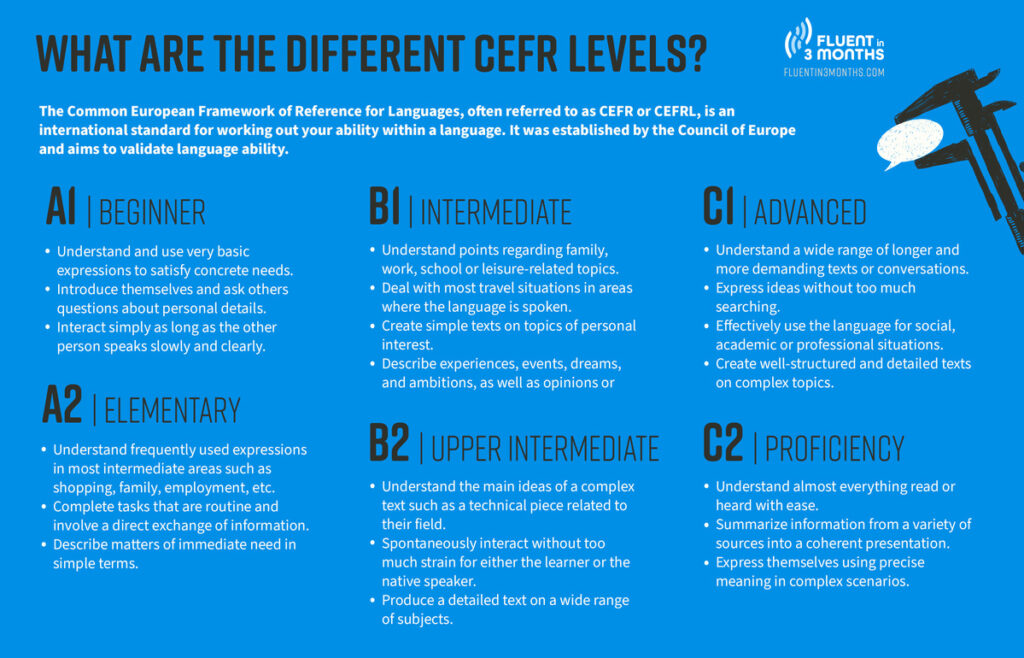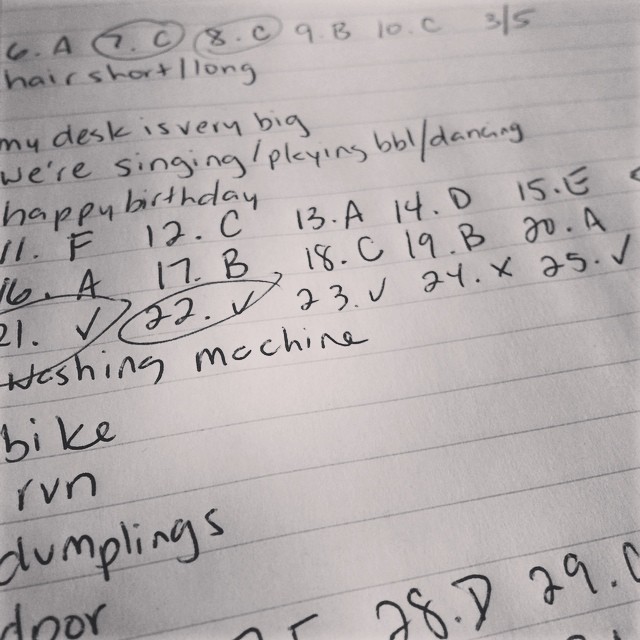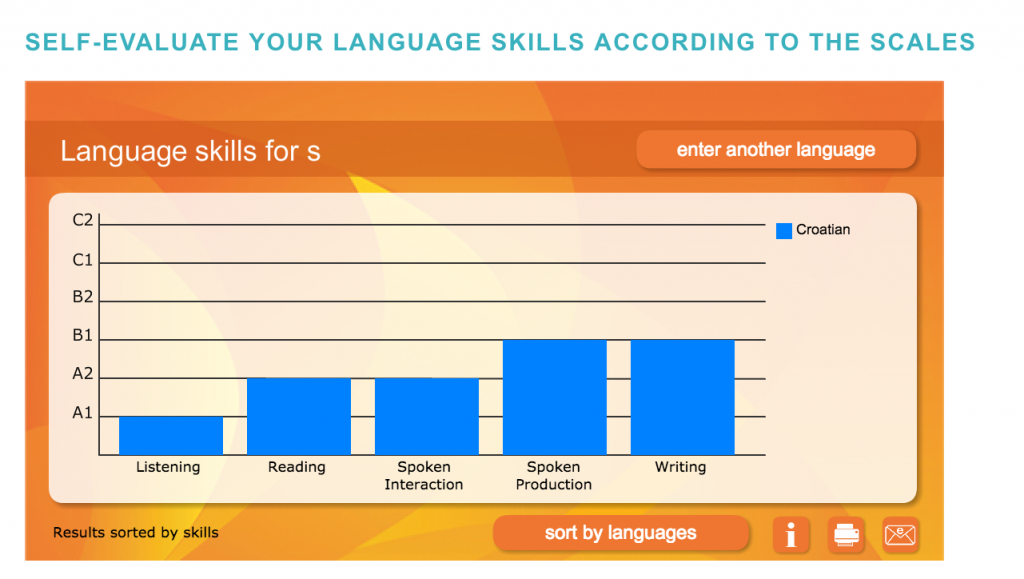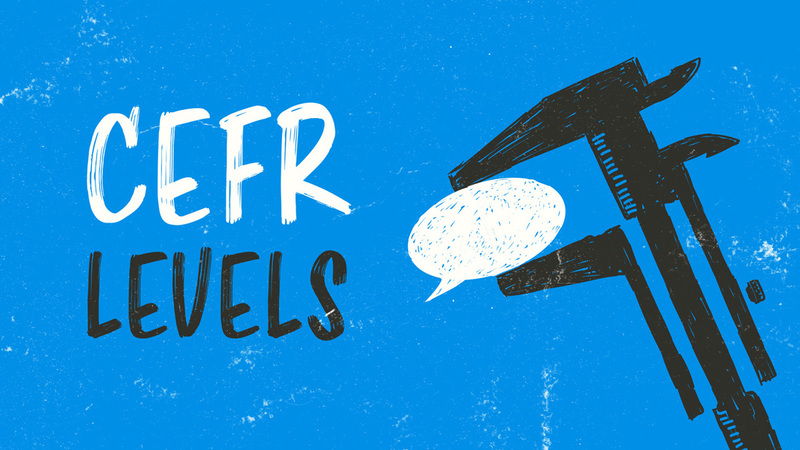CEFR Levels: What They Are and How to Test Yourself
CEFR levels: what are they? And do they matter?
Skill levels in the CEFR system are used by language learners to measure their ability in a language.
We often hear other learners in the language-learning community throw around certain terms when they’re talking about their level in a language.
“I speak German at a B1 level” or “I’m an A2 in Russian.”
But what do B1 and A2 mean, exactly?
Let’s have a look together.
Table of contents
- What Are the Different CEFR Levels?
- The “A” Levels: Basic User
- The “B” Levels: Independent User
- The “C” Levels: Proficient User
- When do the Different CEFR Levels Matter?
- When Do CEFR Levels Not Matter?
- How Do You Work Out Your CEFR Level?
- CEFR Assessments and Tests Available
- How to Improve Your CEFR Level
- A Final Tip With the CEFR Website
What Are the Different CEFR Levels?
The Common European Framework of Reference for Languages, often referred to as CEFR or CEFRL, is an international standard for working out your ability within a language. It was established by the Council of Europe and aims to validate language ability.
The six levels within the CEFR are A1, A2, B1, B2, C1 and C2. With these levels, you can easily work out your ability in around 40 different languages.
The levels are often used casually by language learners to explain their ability at speaking, reading, writing and understanding a language. But there are also exams and certificates available to those who want to make their level official.
Let’s first take a look at what the different levels are and what’s possible for you at each level.
The “A” Levels: Basic User
A1 | Beginner
At the A1 CEFR level, a language learner can:
- Understand and use very basic expressions to satisfy concrete needs.
- Introduce themselves and ask others questions about personal details.
- Interact simply as long as the other person speaks slowly and clearly.
A2 | Elementary
At the A2 CEFR level, a language learner can:
- Understand frequently used expressions in most intermediate areas such as shopping, family, employment, etc.
- Complete tasks that are routine and involve a direct exchange of information.
- Describe matters of immediate need in simple terms.
The “B” Levels: Independent User
B1 | Intermediate
At the B1 CEFR level, a language learner can:
- Understand points regarding family, work, school or leisure-related topics.
- Deal with most travel situations in areas where the language is spoken.
- Create simple texts on topics of personal interest.
- Describe experiences, events, dreams, and ambitions, as well as opinions or plans in brief.
B2 | Upper Intermediate
At the B2 CEFR level, a language learner can:
- Understand the main ideas of a complex text such as a technical piece related to their field.
- Spontaneously interact without too much strain for either the learner or the native speaker.
- Produce a detailed text on a wide range of subjects.
The “C” Levels: Proficient User
C1 | Advanced
At the C1 CEFR level, a language learner can:
- Understand a wide range of longer and more demanding texts or conversations.
- Express ideas without too much searching.
- Effectively use the language for social, academic or professional situations.
- Create well-structured and detailed texts on complex topics.
C2 | Proficiency
At the C2 CEFR level, a language learner can:
- Understand almost everything read or heard with ease.
- Summarize information from a variety of sources into a coherent presentation.
- Express themselves using precise meaning in complex scenarios.
Here’s a video of Benny Lewis, founder of Fluent in 3 Months, explaining the CEFR levels:

When do the Different CEFR Levels Matter?
The CEFR is often used by employers and in academic settings.
You may need a CEFR certificate for:
- School admissions
- University course requirements
- Employment
A CEFR certificate is very handy for your CV or résumé, and they often don’t expire.
That said, many language learners use CEFR levels for self-assessment so that they can more clearly define what they need to work on, and work out what they would like to achieve in their target language.
Aiming for higher CEFR levels are also a great way to make the transition from an intermediate learner to an advanced learner, and Fluent in 3 Months founder Benny Lewis has used exams in the past to force himself to improve and refine his language skills.
If you’re looking for an extra push or for a way to break through a plateau, a language exam could be an effective way to do it. Motivation in language learning always matters.
When Do CEFR Levels Not Matter?
Outside of the professional or academic realm, CEFR levels are not as important. They’re really only necessary if you want to define where you’re at with your target language. In a more casual language learning environment, or when you’re just learning languages because you enjoy them, then CEFR levels are just another tool to help with your language learning.

Sitting an exam requires a lot of study. If your goal is speaking a language, that time you spend reading, listening and writing to meet the exam requirements will be time you could have used to improve your speaking skills.
In the past, I’ve done exams for German, French and Italian as well as the HSK exam for Mandarin Chinese. In preparation for all these exams, I had to study materials that were completely unrelated to my end goals for the languages.
So, if your language learning goals do not align with the CEFR scale, and you don’t need a professional qualification, then you can safely ignore it.
How Do You Work Out Your CEFR Level?
There are a few ways you can work out your CEFR level. Many learners opt for self-assessment, using the descriptions I shared above to gauge where they’re at.

A CEFR self-assessment.
For those looking for something a little more formal, you have the option of taking an official examination or a free online examination.
It’s worth noting that CEFR levels cover a variety of skills. A full CEFR exam typically measures skills in listening, reading abilities, speaking, writing, translating and interpreting. That’s why some learners segment their abilities, for example stating that their listening in a language is at a B2 level but their speaking is only at a B1 level. Others just average out their abilities and say that they’re at a B1 level overall.
CEFR Assessments and Tests Available
Some of your options for official examinations (or for courses with certification) include:
- Alliance Française for French.
- Goethe Institut for German.
- Teastas Eorpach na Gaeilge for Irish.
- Instituto de Cervantes for Spanish.
- CELI for Italian.
- European Consortium for the Certificate of Attainment in Modern Languages for Bulgarian, Croatian, Czech, English, French, German, Hebrew, Hungarian, Italian, Polish, Romanian, Russian, Serbian, Slovak, and Spanish.
- TELC for English, German, Turkish, Spanish, French, Italian, Portuguese, Russian, Polish, and Arabic.
- Πιστοποίηση Ελληνομάθειας for Modern Greek.
- Language Testing International for multiple languages.
- Lingoda for Spanish, French, German, and English.
- ALTE for many other languages.
Online exams include:
- Exam English for English.
- Deutsche Welle for German.
- Cambridge English Language Assessment for English.
- Cambridge Institute for English, Spanish, German, and French.
- Language Level for English, Spanish, French, and German.
- Macmillan Practice Online (paid) for English.
- European Center for Modern Languages for self-assessment in a variety of languages.
Regardless of the exam you sit, language exams demand intensive study and are a great way to push your ability in a language to that next level.
How to Improve Your CEFR Level
At Fluent in 3 Months, we encourage language learners to speak from day one. It’s part of our Bootcamp, and it’s what has worked for our founder Benny to learn over eight languages.
Practicing with native language speakers is helpful to develop three of the most important basic skills: speaking and listening. It helps you become used to the rhythm and melody of the language, pick up accents, understand the way colloquial speech works…
Finding native speakers in your target language is easy with platforms like Preply, where you can book tutorials with teachers and tutors from all over the world.
A Final Tip With the CEFR Website
Azren from the Language Nerd, a polyglot Benny Lewis recently interviewed on the Language Hacking podcast, told me about a very interesting language learning tip involving the CEFR website. Hear about it in this episode:
And for more tips on language learning, check out these articles:



Social